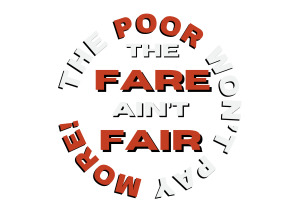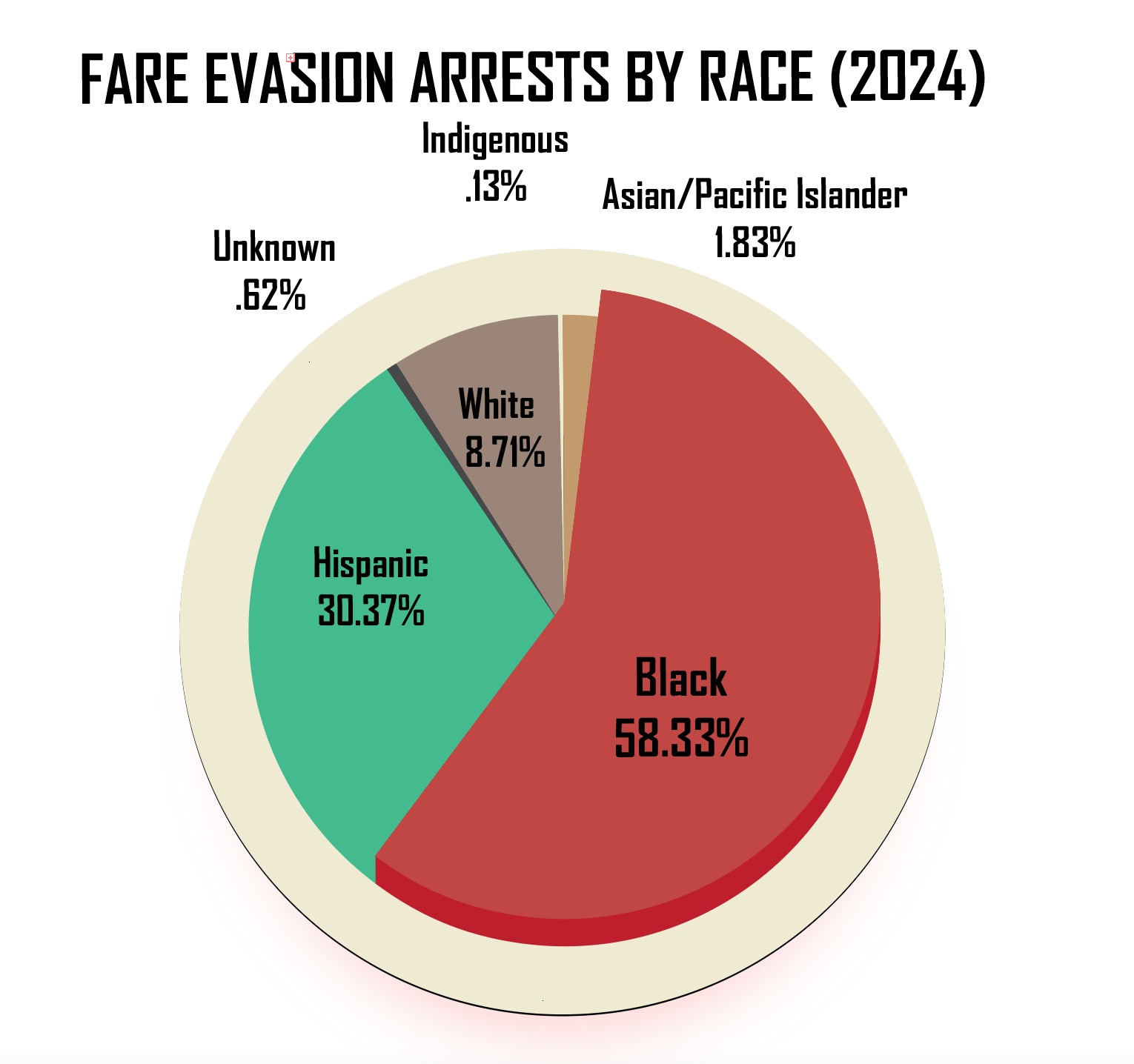Fare Ain’t Fair
The Fare Ain't Fair & THE POOR WON’T PAY MORE
The 1 in 5 people currently struggling to afford transit have been criminalized – both through the MTA’s dehumanizing rhetoric in their board meetings, and in the board’s ambushing use of ‘MTA police’ as violent enforcers of its unaffordable fare. The root cause of fare evasion is not criminality, it is an inability to keep up with the rising cost of living that is outpacing our incomes. Our fight must continue.
Sign the Petition!
WE, THE UNDERSIGNED, demand An affordability crisis envelops the lives of those in New York City, a mostly working, poor and, non-white city. Movement around this city is necessary for survival and public transportation is the means through which the poor and working people achieve that movement. The Metropolitan Transportation Authority (MTA) receives funding for its operation through local and state taxes while unfairly demanding additional payment at the fare box from the ones suffering the most from this unprecedented affordability crisis. For the poor and working people of this city who struggle to pay for the basic necessities of life in this city amidst a crumbling economy, the $2.90 fare is a burden too much to bear. In fact, the MTA plans to increase the fare to $3.00 by January 2026. Currently, NYC offers a program called Fair Fares that reduces the fare in half for those who make below 145% the Federal Poverty Line (FPL). This is not enough!
Our demands:
- MTA Board vote “NO” on proposal to raise the fare in January 2026, as well as all future fare hikes
- The Fair Fares program be expanded to include those who are living at and below 400% the FPL

As of January 2025, New Yorkers earning up to 145% of the federal poverty level (FPL)
qualify for reduced fares through the NYC Fair Fare.
This eligibility leaves out millions of working-class and poor NYers!
Go to nyc.gov/FairFares, check your eligibility, enroll (if possible), and then join us in
the fight to expand this program to include earners up to 400% of FPL ($60,240 for an individual)
The Fare Ain’t Fair Campaign demands the ‘Fair Fares’ NYC program be expanded to include earners up to
400% of the Federal Poverty Line.

Riders Safety
At the root of the uptick in fare enforcement across the city, is the criminalization of those who are struggling to survive under the oppressive economic conditions… aka the criminalization of poverty. With more than 56% of New Yorkers considered as low-income or living in poverty, this is not just a war on Black people or on poverty. It is a war on New Yorkers.
Derrell Mickles was shot by the NYPD in 2024 for not paying the fare at Sutter Ave. L train station in Brooklyn. They shot him on a crowded platform, striking 2 innocent bystanders, one of them in the head. MTA & NYPD criminalize the impoverishment of working-class and poor people, many of whom are Black.
View the full Stop the Frisks, Stop the Fare D12M Report (2024)
Transit Worker’s Safety
50% of assaults on bus operators are the result of a dispute at the farebox. A more accessible and affordable transit system for riders is a safer work environment for transit workers.
Review Compiled Research/Data

